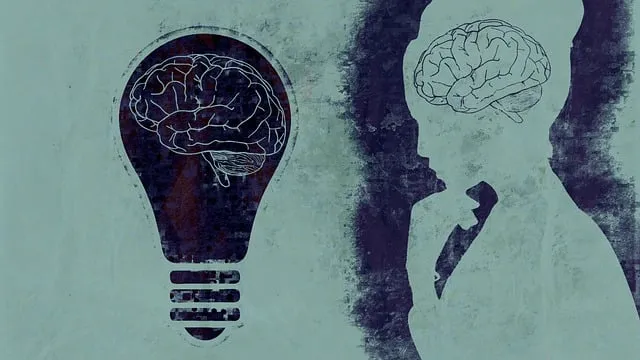Mental health policy, exemplified by Wheat Ridge Kaiser's programs, is vital for improving societal well-being. These programs offer holistic care, evidence-based practices, and stigma reduction, transforming mental wellness conversations. However, they lack robust public awareness campaigns and face accessibility challenges. To enhance their impact, more inclusive policies addressing root causes of mental health issues are needed. By advocating for these programs, leveraging Stress Management and Resilience Building strategies, and aligning with Mind Over Matter principles, we can drive policy changes prioritizing mental well-being. The future lies in integrating innovative services like Trauma Support and Mental Wellness Coaching, addressing systemic barriers, and fostering collaboration to create an inclusive, responsive mental health system.
“Mental health policy advocacy is a powerful tool to drive systemic change and improve access to quality care. This comprehensive analysis explores the intricate landscape of mental healthcare, focusing on Wheat Ridge Kaiser’s innovative programs as a case study. By examining current policies and their impact, we uncover critical gaps and present strategic approaches for advocates. Furthermore, this article delves into future policy reforms, emphasizing the potential for enhanced mental healthcare services, particularly through the lens of Wheat Ridge Kaiser’s successful initiatives.”
- Understanding Mental Health Policy: A Foundation for Advocacy
- Wheat Ridge Kaiser Mental Health Programs: An Overview
- Analyzing the Impact and Gaps in Current Policies
- Strategies for Effective Mental Health Policy Advocacy
- Future Directions: Enhancing Mental Healthcare through Policy Reform
Understanding Mental Health Policy: A Foundation for Advocacy

Mental health policy is a complex and multifaceted area that forms the backbone of advocating for better mental well-being on a societal level. Understanding the intricacies of this policy landscape is essential for anyone aiming to bring about positive change in how mental illness is addressed. At its core, mental health policy encompasses laws, guidelines, and programs designed to ensure accessible and quality care for individuals struggling with various mental disorders. These policies touch upon critical aspects such as funding allocation, treatment options, research support, and community outreach, ultimately shaping the overall mental healthcare system.
Wheat Ridge Kaiser mental health programs serve as a prime example of how policy implementation can make a tangible difference. By focusing on evidence-based practices and integrating initiatives like Mental Illness Stigma Reduction Efforts, these programs promote early intervention and Self-Care Practices. Additionally, incorporating Mindfulness Meditation into their offerings demonstrates a comprehensive approach to addressing mental health, catering to diverse needs within the community. Such initiatives highlight the power of policy advocacy in reshaping conversations around mental wellness and fostering a more supportive environment for those dealing with mental illness.
Wheat Ridge Kaiser Mental Health Programs: An Overview

The Wheat Ridge Kaiser Mental Health Programs stand as a beacon of hope and comprehensive care within the healthcare landscape. These programs are meticulously designed to address a wide array of mental health concerns, offering tailored interventions that cater to diverse individual needs. From crisis intervention guidance to burnout prevention strategies, the initiative encompasses a holistic approach aimed at promoting mental wellness journaling exercise. This multifaceted strategy not only addresses acute crises but also equips individuals with tools for long-term mental health management and resilience.
Within these programs, specialized professionals guide participants through evidence-based practices, ensuring a supportive environment conducive to healing and growth. The inclusion of various services underscores the commitment to providing accessible, high-quality care. By integrating mental health support into everyday life, Wheat Ridge Kaiser aims to foster a culture that prioritizes mental wellness, thereby reducing the stigma associated with seeking help and encouraging proactive measures towards maintaining psychological equilibrium.
Analyzing the Impact and Gaps in Current Policies

The effectiveness of mental health policies is often measured by the accessibility and quality of services available to the public. In the context of Wheat Ridge Kaiser mental health programs, a comprehensive analysis reveals both commendable initiatives and significant gaps. These programs have been instrumental in providing crucial Emotional Healing Processes, catering to diverse communities with varied needs. However, there are notable shortcomings in terms of Public Awareness Campaigns Development, which could further enhance the reach and understanding of mental health issues among the general populace.
The analysis underscores the need for more inclusive policies that address not just the symptoms but also the root causes of mental health concerns. Despite the progress, many individuals still face barriers to accessing affordable care, leading to untreated conditions. By bridging these gaps, advocacy efforts can ensure that mental health programs become more responsive and effective in supporting those in need, ultimately fostering a society with heightened Mental Health Awareness.
Strategies for Effective Mental Health Policy Advocacy

Mental health policy advocacy is a multifaceted approach that requires strategic planning and execution. One effective strategy involves leveraging evidence-based programs like those offered by Wheat Ridge Kaiser, which have proven successful in areas such as Stress Management and Resilience Building. By presenting tangible results and outcomes, advocates can make a compelling case for policy changes that prioritize mental well-being.
Additionally, aligning advocacy efforts with the Mind Over Matter Principles can strengthen arguments. These principles emphasize the power of personal growth, coping mechanisms, and proactive mental health maintenance—all crucial components in fostering robust communities and individuals. Through combining evidence, real-world applications, and foundational concepts, advocates can drive meaningful reforms that address mental health disparities and enhance overall societal well-being.
Future Directions: Enhancing Mental Healthcare through Policy Reform

As we look ahead, the future of mental healthcare lies in comprehensive policy reforms that prioritize access, affordability, and quality. By integrating innovative programs like Trauma Support Services and Mental Wellness Coaching into existing frameworks, such as those offered by Wheat Ridge Kaiser mental health programs, we can significantly enhance patient outcomes. These initiatives focus on building resilience, fostering confidence, and promoting early intervention, ultimately reducing the burden of mental illness on individuals and society as a whole.
Policy advocates must champion evidence-based practices that support diverse populations, address systemic barriers, and encourage collaboration between healthcare providers, community organizations, and policymakers. Through continued research, training, and resource allocation, we can create a more inclusive and responsive mental health system that ensures every individual receives the care they need to thrive. This involves not only expanding access to essential services but also promoting mental wellness coaching programs development to empower individuals with coping strategies for lifelong well-being.
Mental health policy advocacy is a multifaceted approach, as exemplified by the comprehensive analysis of Wheat Ridge Kaiser’s mental health programs. By understanding the landscape, identifying gaps in current policies, and employing effective strategies, we can drive meaningful change. The insights from this study highlight the potential for policy reform to enhance mental healthcare access and outcomes. Looking ahead, future directions should focus on integrating these reforms to create a more supportive and equitable system, ensuring that everyone has access to quality mental health services, much like the successful programs observed at Wheat Ridge Kaiser.



